外研版九年级英语下册课件Module 2 Education Unit 1(共23张PPT)
文档属性
| 名称 | 外研版九年级英语下册课件Module 2 Education Unit 1(共23张PPT) | 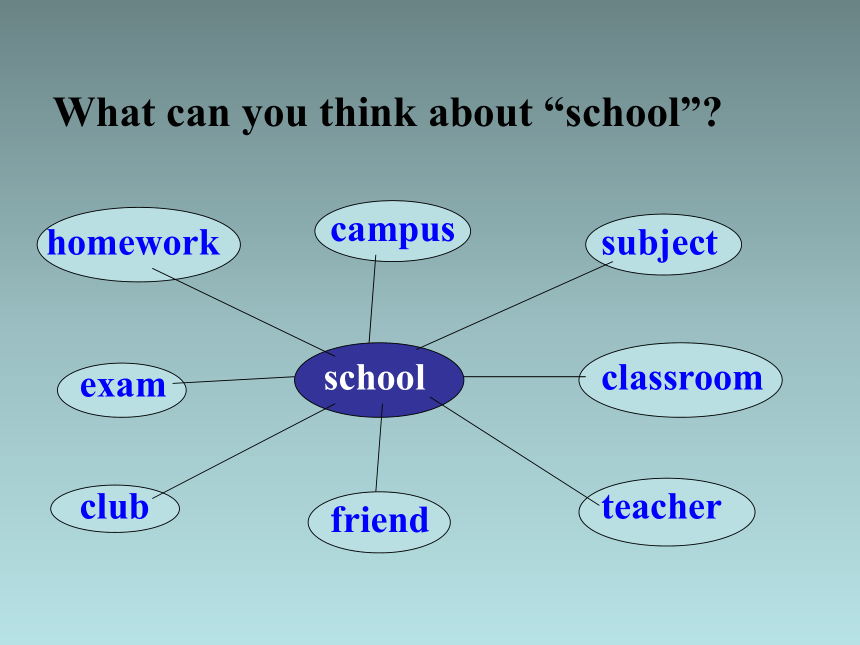 | |
| 格式 | pptx | ||
| 文件大小 | 2.5MB | ||
| 资源类型 | 教案 | ||
| 版本资源 | 外研版 | ||
| 科目 | 英语 | ||
| 更新时间 | 2022-08-16 08:16:51 | ||
图片预览

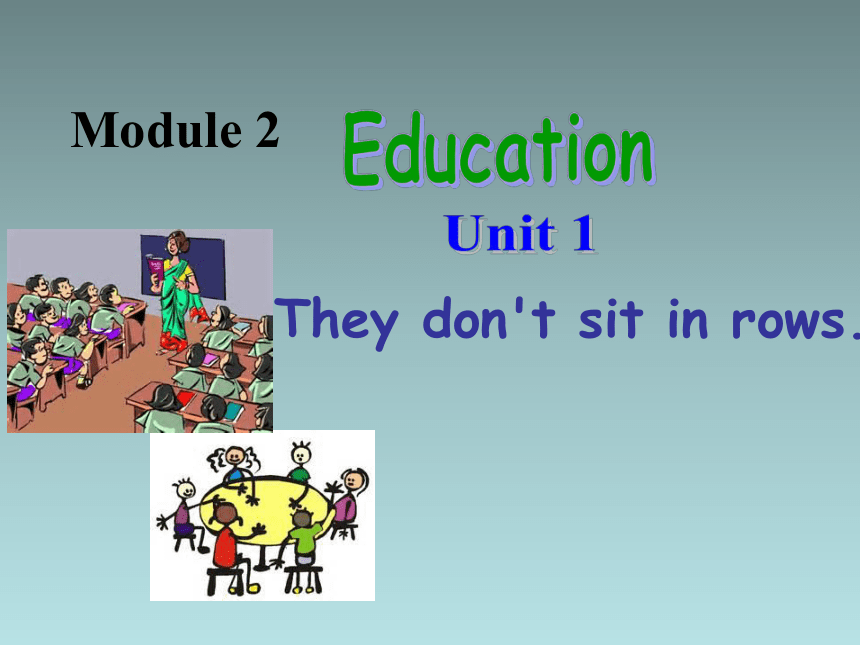

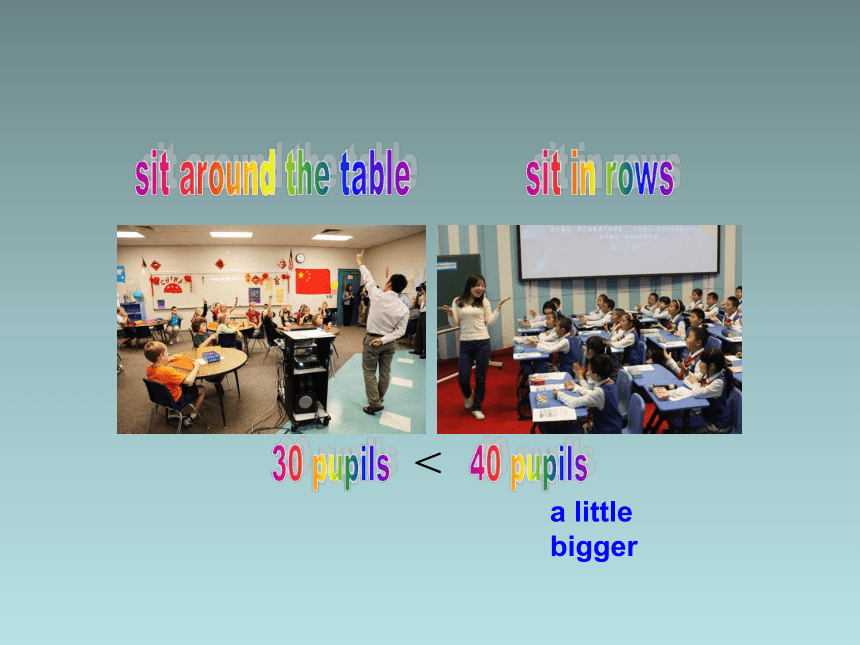
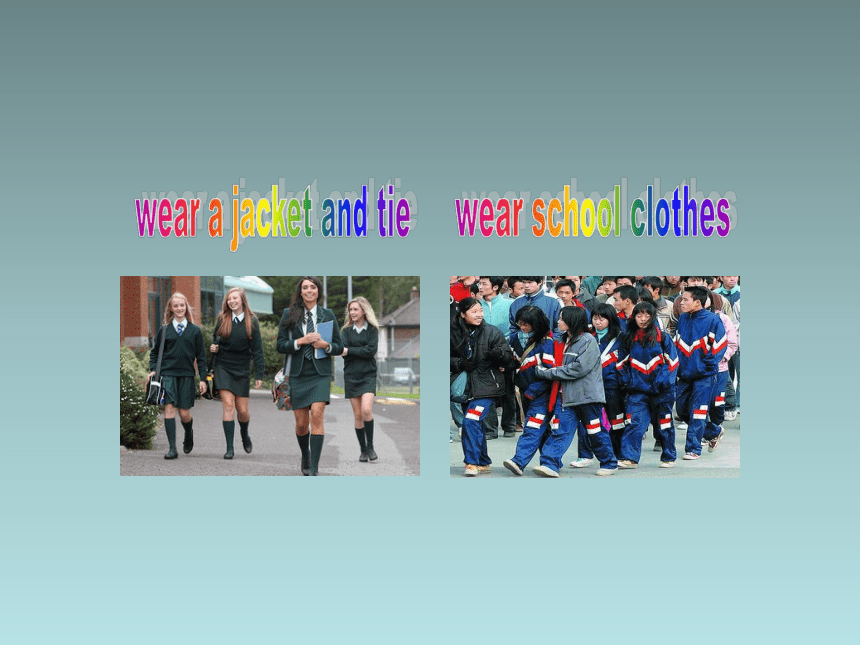
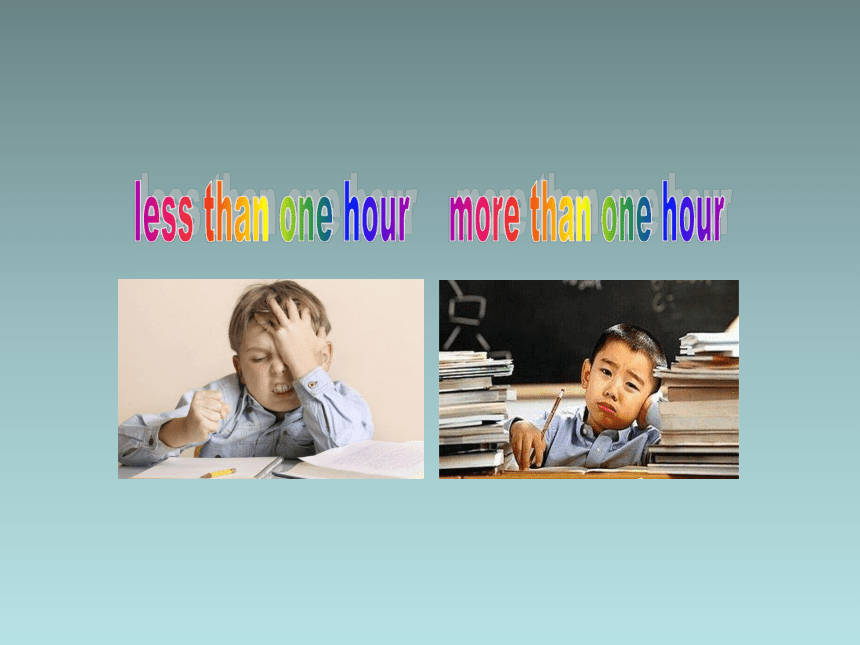
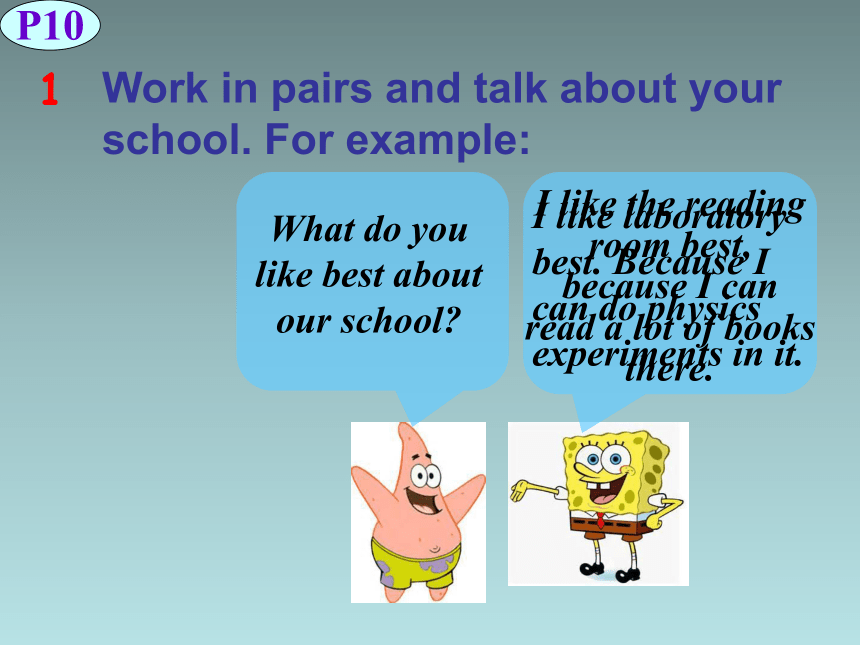
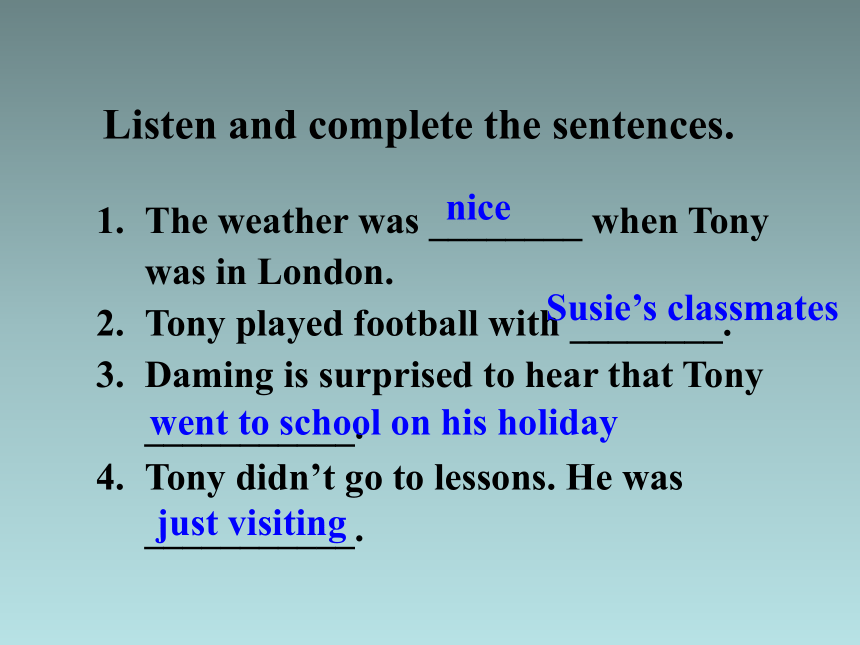
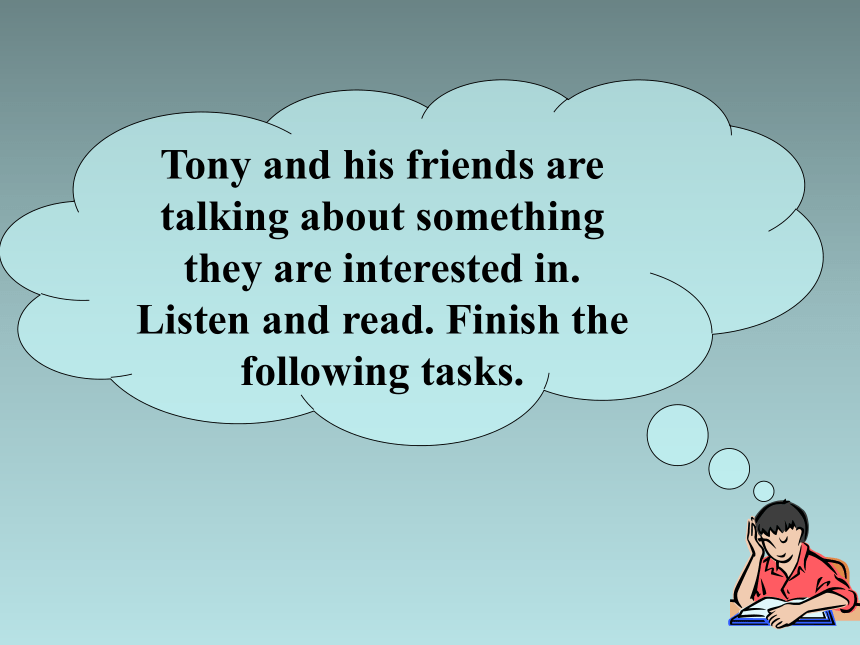
文档简介
(共23张PPT)
school
campus
homework
classroom
subject
teacher
friend
exam
club
What can you think about “school”
Module 2
Education
Unit 1
They don't sit in rows.
differences of schools
sit around the table
sit in rows
30 pupils
40 pupils
<
a little bigger
wear a jacket and tie
wear school clothes
less than one hour
more than one hour
Work in pairs and talk about your school. For example:
1
P10
I like the reading room best, because I can read a lot of books there.
What do you like best about our school
I like laboratory best. Because I can do physics experiments in it.
The weather was ________ when Tony was in London.
Tony played football with ________.
Daming is surprised to hear that Tony ___________.
Tony didn’t go to lessons. He was ___________.
nice
Listen and complete the sentences.
Susie’s classmates
went to school on his holiday
just visiting
Tony and his friends are talking about something they are interested in. Listen and read. Finish the following tasks.
Task 1
Listen to the conversation and answer the following questions.
1. What are they talking about
They are talking about Susie’s school.
Look through the conversation and complete Susie’s column in the table.
3
P10
Task 2
Susie’s school
Number of pupils in the school
Number of pupils in a class
Arrangement of seats in the classroom
Sports areas
700
30
sit around tables
huge
Complete Susie’s column in the table.
Susie’s school Your school
Number of pupils in the school
Number of pupils in a class
Arrangement of seats in the classroom
Sports areas
about 700 pupils
have more
students
about 30 pupils
40
sit around tables
sit in rows
the sports ground
swimming pool and the sports ground
4
P11
Task 3
1. Who did Tony visit in London
2. How did Tony get the photos of Susie’s school
3. Which class is a bit bigger, Susie’s or Daming’s
4. What does Betty hope to do one day
He visited his friend Susie.
He took them himself.
Daming’s class is a bit bigger.
She hopes she can visit his friend Susie’s school one day.
Answer questions
5
P11
Task 4
Pupils in England do not sit in (1) _______ in the classroom. They sit around tables. Everyone (2) _______ a jacket and (3) _______. Most schools have sports grounds, and English children (4) _______ playing football, just as pupils in China do. Some English schools have swimming (5) _______, but not all of them do.
enjoy pool row tie wear
rows
wears
tie
enjoy
pool
Language points
1. I took myself.
我自己拍的。
这里的反身代词myself在句中作同位语,起加强语气的作用。反身代词在句中还可以作宾语。如:
We should take care of ourselves.
我们应该照顾自己。
Did you enjoy yourself in London
enjoy oneself “玩得高兴”近义词语为
have fun/ have a good time
We had a good time during our holiday.
We had fun during our holiday.
We enjoyed ourselves during our holiday.
反身代词 词义 反身代词 词义
myself 我自己 itself 它自己
yourself 你自己 ourselves 我们自己
himself 他自己 yourselves 你们自己
herself 她自己 themselves 他们自己
enjoy
teach
hurt
introduce
do
kill
help
by
+oneself
反身代词
(动词或介词by后)
玩得开心
自学
弄伤自己
自我介绍
自己做
自杀
随意吃点……
靠……自己
1 James teaches________Chinese. Nobody helps____.
2. Help__________to some fish, boys and girls.
3. Miss Mary finished the hard work by_________.
himself
him
yourselves
herself
2. What are English schools like
英国的学校怎么样?
What is …like …怎么样?
① 要求对方对特定事物进行描述。
—What was the exam like 这次考试怎么样
—It was very difficult. 难极了。
② 询问天气情况。
What was the weather like 天气怎么样
③ 可指人的外表,也可指人的性格或品质。
—What is she like 她长得如何
—Very beautiful. 长得很漂亮。
—What is she like 她是怎样一个人
—She is very kind. 她很友好。
2. So ours is a bit bigger.
所以,我们的班级要大一些。
名词性物主代词具有名词的特征,相当于“形容词性物主代词+名词”。
我的词典丢了。请把你的借我用一下。
I have lost my dictionary. Please lend me yours.
3. I hope I can visit Susie’s school one day.
希望我有一天可以去苏西的学校。
one day意为“某一天”、“有一天”,既可用于过去时中,也可用于将来时中。如:
One day we’ll both get to see New York.
总有一天我俩都有机会看看纽约。
One day the temperature was 30℃.
有一天温度达到三十摄氏度。
If you drive so fast, you’ll run down someone some day.
你要是开得这么快,总有一天会撞伤人的。
some day(或someday)也有“某一天”之意,但它指的是“将来的某一天”,要用将来时。如:
穿/戴(衣帽/鞋袜/眼镜/…) wear put on be in
强调状态 强调动作 强调款式/颜色
4. Look, everyone is wearing a jacket and tie!
看,每个人都穿西装打领带!
1. Do you know the woman______red
2. My grandpa always______a pair of glasses.
3. ________your coat quickly, it’s cold outside.
in
wears
Put on
Preview the new words and expressions in Unit 2.
2. Search for the information about the education system in Britain.
Homework
school
campus
homework
classroom
subject
teacher
friend
exam
club
What can you think about “school”
Module 2
Education
Unit 1
They don't sit in rows.
differences of schools
sit around the table
sit in rows
30 pupils
40 pupils
<
a little bigger
wear a jacket and tie
wear school clothes
less than one hour
more than one hour
Work in pairs and talk about your school. For example:
1
P10
I like the reading room best, because I can read a lot of books there.
What do you like best about our school
I like laboratory best. Because I can do physics experiments in it.
The weather was ________ when Tony was in London.
Tony played football with ________.
Daming is surprised to hear that Tony ___________.
Tony didn’t go to lessons. He was ___________.
nice
Listen and complete the sentences.
Susie’s classmates
went to school on his holiday
just visiting
Tony and his friends are talking about something they are interested in. Listen and read. Finish the following tasks.
Task 1
Listen to the conversation and answer the following questions.
1. What are they talking about
They are talking about Susie’s school.
Look through the conversation and complete Susie’s column in the table.
3
P10
Task 2
Susie’s school
Number of pupils in the school
Number of pupils in a class
Arrangement of seats in the classroom
Sports areas
700
30
sit around tables
huge
Complete Susie’s column in the table.
Susie’s school Your school
Number of pupils in the school
Number of pupils in a class
Arrangement of seats in the classroom
Sports areas
about 700 pupils
have more
students
about 30 pupils
40
sit around tables
sit in rows
the sports ground
swimming pool and the sports ground
4
P11
Task 3
1. Who did Tony visit in London
2. How did Tony get the photos of Susie’s school
3. Which class is a bit bigger, Susie’s or Daming’s
4. What does Betty hope to do one day
He visited his friend Susie.
He took them himself.
Daming’s class is a bit bigger.
She hopes she can visit his friend Susie’s school one day.
Answer questions
5
P11
Task 4
Pupils in England do not sit in (1) _______ in the classroom. They sit around tables. Everyone (2) _______ a jacket and (3) _______. Most schools have sports grounds, and English children (4) _______ playing football, just as pupils in China do. Some English schools have swimming (5) _______, but not all of them do.
enjoy pool row tie wear
rows
wears
tie
enjoy
pool
Language points
1. I took myself.
我自己拍的。
这里的反身代词myself在句中作同位语,起加强语气的作用。反身代词在句中还可以作宾语。如:
We should take care of ourselves.
我们应该照顾自己。
Did you enjoy yourself in London
enjoy oneself “玩得高兴”近义词语为
have fun/ have a good time
We had a good time during our holiday.
We had fun during our holiday.
We enjoyed ourselves during our holiday.
反身代词 词义 反身代词 词义
myself 我自己 itself 它自己
yourself 你自己 ourselves 我们自己
himself 他自己 yourselves 你们自己
herself 她自己 themselves 他们自己
enjoy
teach
hurt
introduce
do
kill
help
by
+oneself
反身代词
(动词或介词by后)
玩得开心
自学
弄伤自己
自我介绍
自己做
自杀
随意吃点……
靠……自己
1 James teaches________Chinese. Nobody helps____.
2. Help__________to some fish, boys and girls.
3. Miss Mary finished the hard work by_________.
himself
him
yourselves
herself
2. What are English schools like
英国的学校怎么样?
What is …like …怎么样?
① 要求对方对特定事物进行描述。
—What was the exam like 这次考试怎么样
—It was very difficult. 难极了。
② 询问天气情况。
What was the weather like 天气怎么样
③ 可指人的外表,也可指人的性格或品质。
—What is she like 她长得如何
—Very beautiful. 长得很漂亮。
—What is she like 她是怎样一个人
—She is very kind. 她很友好。
2. So ours is a bit bigger.
所以,我们的班级要大一些。
名词性物主代词具有名词的特征,相当于“形容词性物主代词+名词”。
我的词典丢了。请把你的借我用一下。
I have lost my dictionary. Please lend me yours.
3. I hope I can visit Susie’s school one day.
希望我有一天可以去苏西的学校。
one day意为“某一天”、“有一天”,既可用于过去时中,也可用于将来时中。如:
One day we’ll both get to see New York.
总有一天我俩都有机会看看纽约。
One day the temperature was 30℃.
有一天温度达到三十摄氏度。
If you drive so fast, you’ll run down someone some day.
你要是开得这么快,总有一天会撞伤人的。
some day(或someday)也有“某一天”之意,但它指的是“将来的某一天”,要用将来时。如:
穿/戴(衣帽/鞋袜/眼镜/…) wear put on be in
强调状态 强调动作 强调款式/颜色
4. Look, everyone is wearing a jacket and tie!
看,每个人都穿西装打领带!
1. Do you know the woman______red
2. My grandpa always______a pair of glasses.
3. ________your coat quickly, it’s cold outside.
in
wears
Put on
Preview the new words and expressions in Unit 2.
2. Search for the information about the education system in Britain.
Homework
同课章节目录
- Module 1 Travel
- Unit 1 We toured the city by bus and by taxi
- Unit 2 It's a long story.
- Unit 3 Language in use
- Module 2 Education
- Unit 1 They don't sit in rows.
- Unit 2 What do I like best about school?
- Unit 3 Language in use
- Module 3 Life now and then
- Unit 1 They sometimes work harder.
- Unit 2 I think life is better today.
- Unit 3 Language in use.
- Module 4 Rules and suggestions
- Unit 1 You must be careful of falling stones.
- Unit 2 we must keep the camp clean.
- Unit 3 Language in use.
- Revison A
- Module 5 Look after yourself
- Unit 1 We'd better get you to hospital.
- Unit 2 Get off the sofa!
- Unit 3 Language in use.
- Module 6 Eating togethe
- Unit 1 When is the school-leavers' party?
- Unit 2 Knives and forks are used for most Western
- Unit 3 Language in use
- Module 7 English for you and me
- Unit 1 Have you ever been to an English corner?
- Unit 2 We all own English.
- Unit 3 Language in use
- Module 8 My future life
- Unit 1 Here's to our friendship and the future
- Unit 2 I know that you will be better at maths.
- Unit 3 Language in use
- Revison B
